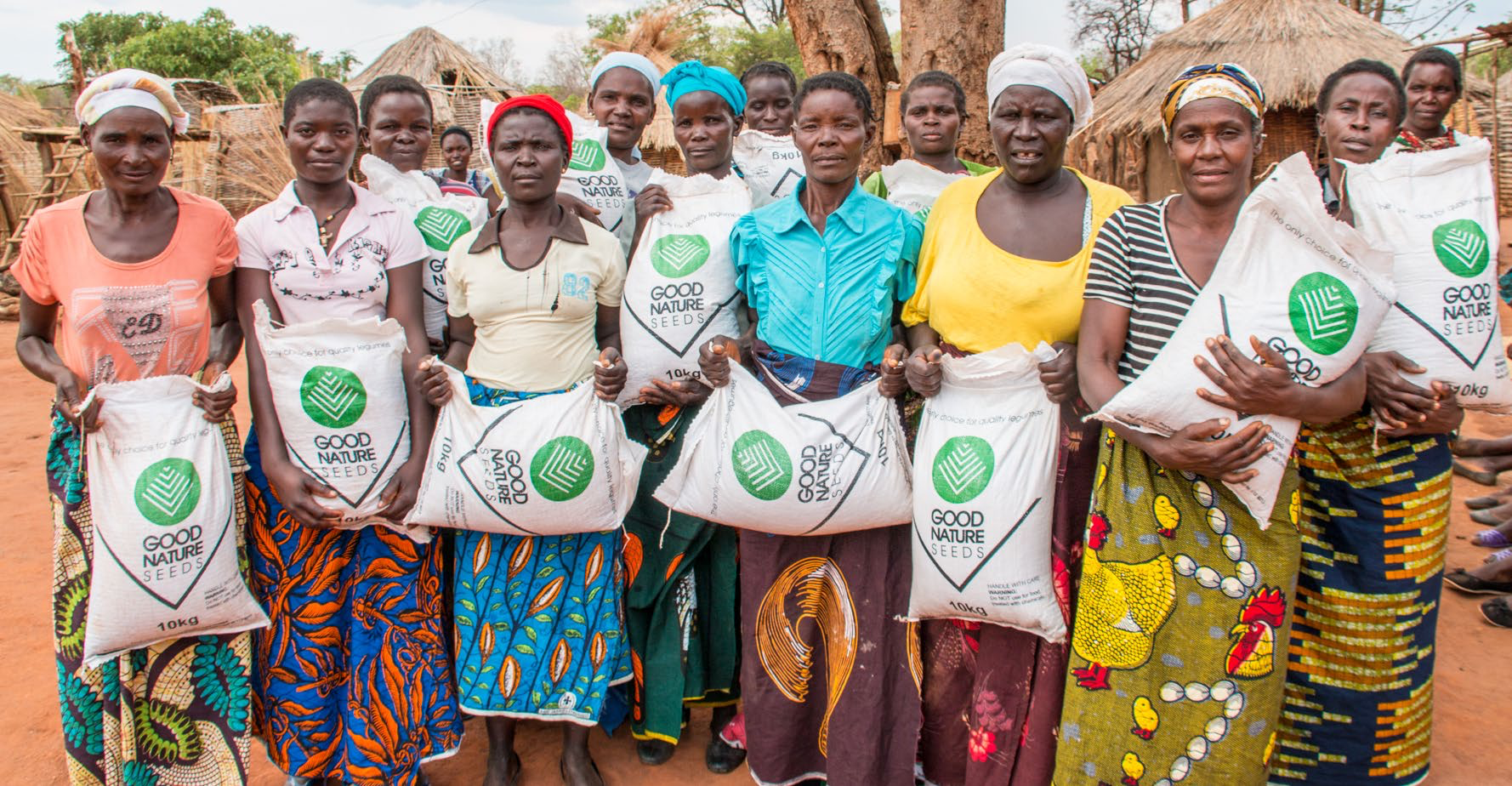Good Nature Agro and Global Partnerships
About
Good Nature Agro (GNA) is a for-profit social enterprise that works with rural, small-scale farmers in Zambia and Malawi to supply the region with high-quality legume seed and commodities. GNA’s model provides farmers with certified seeds and inputs on credit, in-depth technical assistance (TA), farmer-friendly financing, and guaranteed off-taking contracts.
Global Partnerships (GP) is an impact-first fund manager dedicated to expanding opportunities for people living in poverty. The Global Partnerships/ Eleos Social Venture Fund, LLC (SVF), a GP-affiliated fund, first invested in GNA during the enterprise’s seed equity round in 2018 with an investment thesis that centred on GNA’s capacity to increase the incomes and enhance the well-being of small-scale farmers living in poverty.
Type of actor
Investee company
Investment type
Seed funding, working capital loan
Operates in
Zambia and Malawi
Sectors
Agriculture
GP’s investment thesis hasn’t changed, but over time, GP and GNA have sharpened their understanding of how climate and gender smart practices strengthen the enterprise’s impact performance. With this, the SVF made an additional equity investment in GNA’s Series A round in 2020. In 2021, another GP-affiliated fund, the Global Partnerships Social Investment Fund 6.0, LLC, provided GNA with a working capital loan to support continued growth and scale of impact.
Approach
GNA currently works with over 25,000 farmers who manage an average of three hectares each, cultivating crops for consumption alongside modest volumes of crops for sale at local markets. Maize is the predominant crop, which, in addition to fetching low prices, is sensitive to drought, and tends to deplete the soil due to low rotation and high agri-chemical use. Furthermore, the rain-fed farming season in Zambia is only once per year, putting additional pressure on farmers and their soils. With ongoing climate-related changes in the timing and volume of rainfall, GNA’s farmers face increased risks of income volatility and loss.
“With a grant from Comic Relief, GNA recently conducted a farmer‑focused gender study, piloted several initiatives, and identified targeted ways for GNA to drive stronger participation of, and impact for, female farmers.”
GNA’s female farmers, who constitute 37% of its producers, face heightened challenges to sustaining and growing their livelihoods. In the regions where GNA operates, land is primarily owned by men who have better access to financing and farming assets and are generally considered the head of the household. Women tend to work in labour-intensive, under-supported crops like groundnut and cowpeas, and they do so with limited access to resources and disproportionate domestic and community responsibilities. These disparities can increase the negative impact climate change can have on female vs male farm families.
GNA’s model helps farmers diversify into legume markets which can provide upwards of 50% improved margins over maize. In addition to increasing farmer incomes, GNA fosters climate resilience by selecting legume seeds that are drought/pest/disease resistant, mature early, and have the added benefit of fixing nitrogen to replenish the soil. Through its high-touch TA model, GNA helps farmers incorporate adaptive and sustainable farming practices, helping farmers respond to both immediate and longer-term impacts of climate change, while promoting decreased reliance on high-cost chemicals. GNA is also investing in technology that will enhance information access and improve communication with farmers as they face changing and more severe weather patterns.
GNA has always looked to positively impact the female farmers it serves, but its efforts don’t stop there. With a grant from Comic Relief, it recently conducted a farmer-focused gender study, piloted several initiatives, and identified targeted ways for GNA to drive stronger participation of, and impact for, female farmers. GNA’s business plan now incorporates targeted gender-smart activities such as asset financing, pre-harvest payments to support household consumption/harvest preparation during lean months, and co-registering spouses to drive more equitable access to GNA’s payment/saving programs, including digital banking, while enabling shared visibility and household dialogue around finances.
Impact
GP and GNA recently collaborated on an impact assessment, known as Lean Data. The mobile-based surveying, conducted by 60 Decibels, Inc. was designed to gain deeper insight into the farmers served and outcomes enabled through GNA’s model.
Results demonstrate that GNA’s farmers (92% of whom live below the $5.50 per person/day international poverty line) are experiencing strong outcomes with strong gender parity. 79, 78 and 65% of farmers who have completed at least one harvest with GNA report increased income, savings, and food consumption respectively with consistent results when disaggregated by gender. Given the climate and gender-related challenges faced by farmers, GNA and GP recognise the company’s climate and gender-smart practices as critical to enabling these results.
Key takeaways
There is much to learn from GNA’s approach, including its commitment to collecting gender-disaggregated data on the impacts of its activities to inform future decision-making.
Similarly, this example highlights the importance for investors and investee companies to work together in assessing how climate and gender-just practices can strengthen the investee company’s impact performance. This understanding can ensure that any future investments are channelled in a way that optimises outcomes from financial, environmental, and social perspectives.
What’s next?
As GNA moves forward, climate resilience will remain core to its offering, as will gender-smart adaptations to its training, information, and leadership opportunities – both with farmers and with GNA employees.

